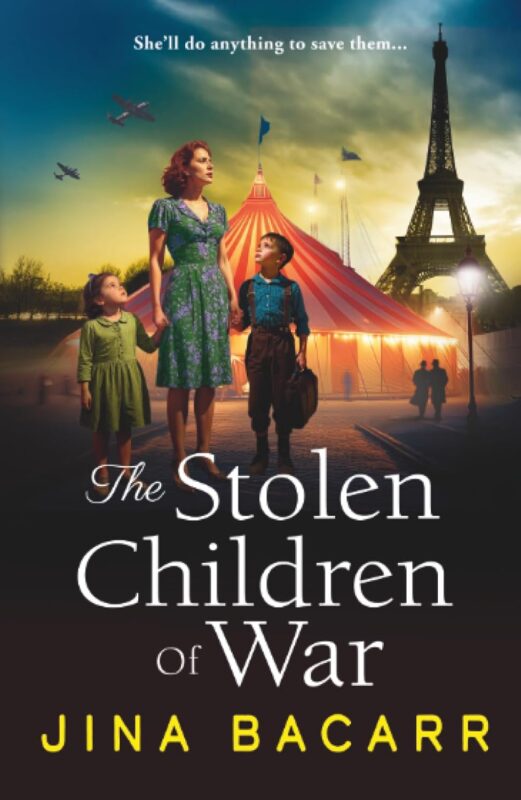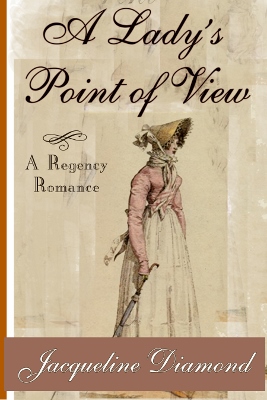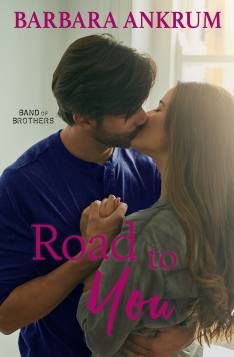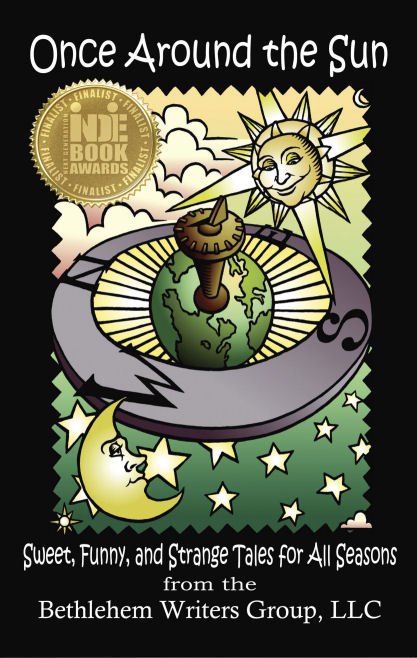On This Fourth Day of Christmas…
December 28, 2021 by Alina K. Field in category Quarter Days by Alina K. Field tagged as A Regency Christmas, The Grand Holiday, The Man Who Invented ChristmasI’m reprising a post from a Christmas past. Some of you know that my husband of thirty-nine years passed away several weeks ago. I’ve been preoccupied with honoring his life and grieving, so I’m sharing this earlier Quarter Days blog. Enjoy!
The Grand Holiday
In past posts, I talked about the English Quarter Days of Midsummer’s Day and Michaelmas.
Father Christmas with the Yule Log, 1848
To refresh your memory, Quarter Days were the four days during the year when rents were paid, servants hired, and contracts commenced. The last Quarter Day of the calendar year was the grand holiday of Christmas. Though the Quarter Day was December 25th, Christmas celebrations went on for twelve days.

Kissing under the Mistletoe
Christmas Romance
We romance authors flood the lists every year with Christmas novellas, and not just the contemporary lists. Christmas Regency romances abound and sell well. But how to get the details right for our hero and heroine? How did the Christmas celebrations aid or interfere with a Regency hero’s wooing? How did they celebrate Christmas?
Before the Regency

As I pointed out in an earlier post, Christmas falls around the time of the winter solstice. The pagan festivities of the season were Bacchanalian revels of feasting and drinking and other “wicked” practices. To encourage some order, the early Christian church designated December 25th as a religious holiday.
So, people went to church…and then they feasted, drank, etc.
Under the Puritan rule that resulted from the 17th century English Civil War, the observance of Christmas was banned. The Lord High Protector of England, Oliver Cromwell, and his Puritan cohorts decided that English people needed to be protected from carnal delights of holiday celebrations. Christmas became a regular workday. Anyone celebrating could be subject to penalty.
The Puritans carried this attitude across the Pond. Christmas was illegal in their American colonies also.
With the restoration to the throne of Charles II (a man greatly given to Bacchanalian revels), Christmas was also restored in the English calendar of holidays.
The Man Who Invented Christmas

Christmas as we know it was documented by Charles Dickens, author of A Christmas Carol. In the story of Scrooge and Tiny Tim, Dickens brought to life the quintessential picture of a Victorian Christmas.
But if you’re writing a Regency-set Christmas romance, don’t pull out your copy of Dickens and copy his story world. To quote a post I wrote a couple of years ago:
Decorating with evergreen boughs and mistletoe (and kissing under the mistletoe!), wassailing, acting out pantomimes, and singing carols, were part of the Regency holiday celebration…Christmas trees and Santa Claus did not become popular until Victorian times.
Click on the link to read the rest of that post.
A Visit from St. Nicholas
Or, the title most of us know it by, ‘Twas the Night Before Christmas, was written by an American, Clement Clarke Moore, in 1823. Dutch and German holiday traditions influenced the celebration of Christmas earlier in America than in England. Prince Albert, Victoria’s German prince, is credited with popularizing the Christmas tree in England.
Pictures worth a thousand words
Dickens brought us A Christmas Carol in 1843, but check out this series of illustrations by cartoonist George Cruikshanks. Even before Scrooge made his appearance, the early Victorians were holding over-the-top celebrations of the Twelve Days of Christmas.
No matter what holiday you celebrate, I wish you all the best in this season of holidays! Hold your loved ones close, and treasure every moment!
0 0 Read moreGet Ready for CHRISTMAS KISSES!
September 28, 2021 by Alina K. Field in category Quarter Days by Alina K. Field, Writing tagged as new release
A Brand New Holiday Collection–a 99 cent Pre-order
Heat up the holiday with ten dreamy regency rogues! Winter is a time of magic, promise, and unexpected romance. Anything could happen…and it all begins with Christmas Kisses.
The Wallflower’s Christmas Wish (Brides of Bath) by Cheryl Bolen: While painting the portrait of Sir Elvin Steffington, Bath’s most eligible bachelor, the exceedingly plain spinster Diana Furness develops a strong friendship with her subject. Could this be more than friendship? Could he ever be attracted to one as inconsequential as she?
A Kiss From a Captain (An Everly Manor Happily Ever After) by Samantha Grace: Captain Gabriel Brazier defied doctors’ predictions and learned to walk again after losing his leg in war. But the damning voice whispering no woman will find him desirable again is hard to ignore, especially when he arrives at Everly Manor to compete for the charming Lady Laurel’s heart.
A Rogue’s Christmas Kiss (The Rogue Chronicles) by Lana Williams: Mary is shaken by a letter requesting she return home for Christmas. But her world is truly upended when she reunites with a former love for the long journey. Arthur has no desire to rekindle their relationship after Mary broke his heart, but a snowstorm and some passionate kisses just might reignite their love.
’Twas the Rogue Before Christmas (The Honorable Rogues®) by Collette Cameron: Eager to leave England, American, Jason Steele can’t forget the beautiful noblewoman he saved from a foiled robbery. Determined to behave properly, Lenora Audsley can’t stop thinking about the rogue who rescued her. Can the magic of the holiday season unite these lovers who are forbidden to see each other?
Bound to the Belgian Count (London Lords) by Sasha Cottman: Abandoned bride, Lily is determined to seek an annulment. But when her absent husband Count Maximilian de Viron suddenly appears in court, the judge decides on a unique compromise. Between now and Christmas Eve, the couple must live together, share meals, and talk.
Embracing the Scandal by Barbara Monajem: Harriet is banished for her naughty behavior, and when Jonathan asks for her hand, he is told she is dead. When they meet again, can they overcome the lies and sins of the past to fall in love once again?
A Viscount for Christmas by Suzanna Medeiros: Viscount Thornton returns home for his mother’s annual Christmas party to find a beautiful woman sleeping in his bed. Neither he nor Celia are happy when her mother demands they wed. Can they escape marriage or will they both get the Christmas gift they didn’t know they wanted?
The Impetuous Heiress (The Upstart Christmas Brides) by Alina K. Field: Before dashing Lord Loughton can make amends with his neglected fiancée, the lady’s meddling cousin delivers her to his doorstep. He soon realizes more is amiss than his carelessness. Can he uncover her secrets and win her back before he loses her altogether?
A Duchess for Christmas (Forgotten Heiress) by Alanna Lucas: Grace Banks is looking forward to her first Christmas at the Home for Desolate Ladies, but Edward, Duke of Tavistock, is set upon ruining it, and the secrets keeping them apart leave little hope for reconciliation. Can the spirit of Christmas heal two wounded hearts?
Let it Snow by Heather Boyd: When the worst scoundrel in her acquaintance rescues Yvette from a winter storm, she fears a holiday spent dodging his attempts at seduction. But more than one yuletide surprise awaits as she discovers Luc is a man of surprising patience, and passion for just one woman…Yvette herself.

The Impetuous Heiress
This collection includes my story, The Impetuous Heiress. Read an excerpt at my website’s Christmas Kisses book page.
Christmas Kisses is priced at 99 cents during pre-order. Pick up your copy today!
Buy Links:
Amazon
https://www.amazon.com/dp/B08MTT1PG8
https://www.amazon.co.uk/dp/B08MTT1PG8
https://www.amazon.ca/dp/B08MTT1PG8
https://www.amazon.com.au/dp/B08MTT1PG8
Apple Books
https://books.apple.com/us/book/christmas-kisses/id1538877649
https://books.apple.com/gb/book/christmas-kisses/id1538877649
https://books.apple.com/ca/book/christmas-kisses/id1538877649
https://books.apple.com/au/book/christmas-kisses/id1538877649
Barnes & Noble
https://www.barnesandnoble.com/w/christmas-kisses-cheryl-bolen/1138033752?ean=2940162733775
Kobo
https://www.kobo.com/us/en/ebook/christmas-kisses-13
https://www.kobo.com/gb/en/ebook/christmas-kisses-13
https://www.kobo.com/ca/en/ebook/christmas-kisses-13
https://www.kobo.com/au/en/ebook/christmas-kisses-13
https://play.google.com/store/books/details?id=l083EAAAQBAJ
5 0 Read moreMrs. Hurst Dancing, a Review
June 28, 2021 by Alina K. Field in category Quarter Days by Alina K. Field, Writing tagged as #ReadaRegency, Diana Sperling, Quarter Days, Regency Fashions, Regency romancePictures worth much more than a thousand words.

If you’re a fan of Jane Austen and other Regency-set fiction, Mrs. Hurst Dancing, a collection of 70 watercolors by Diana Sperling, is a treasure. The book is especially valuable for the often-confused author trying to envision the clothing, the transportation, and how everyone passed the time, especially in the country. Unfortunately, no one was posting helpful YouTube videos two hundred years ago.
The above painting is a good example of what you’ll find in the book. The tongue-in-cheek description is Sperling’s own. The “Lord of the Manor”, probably her brother Henry, leads three ladies (probably Diana and her sisters) to a neighbor’s house for a dinner party.
Staples of Country Life
All three ladies are wearing red cloaks, which I often forget were staples of country life, and also good indicators of class. The Sperling family were gentry, not super-rich nobility. The bonnets look like leghorn bonnets with flatter crowns. If you know what they are, please mention it in the comments.
Dinner in the country was earlier than in “town”. They’re not driving down the road to the neighbor’s in a coach and four–they’re walking cross-country! There’s no date on this picture, so we don’t know what season this is; probably not the dead of winter though, despite the cloaks. The three ladies are carrying their shoes for indoors, and it looks like Henry has his stuffed into the pocket of his coat. (Men’s pockets were in the tails of their coats.)
Hiking to Dinner
He’s also carrying a lantern for the walk home. No street lights in the country. Without our modern light pollution, imagine how dark it must have been?
And what about that “tremendous stile”? According to Merriam-Webster, a stile is “a step or set of steps for passing over a fence or wall”. Like this:

A stile allows people to pass, but not livestock. I don’t see stairs in Sperling’s drawing, but there does seem to be a space to the left. I hope the ladies don’t have to climb over those rails in their white gowns.
As I mentioned, there are seventy watercolors in the book depicting the country life of the gentry in this era. In one, Diana’s mother and the housekeeper stand on the window ledge “murdering flies”. In another, the ladies of the family are wallpapering a room. There’s a drawing of the family holding hands and experimenting with an “electrifying machine”. Horses, donkeys, dogs, chickens are all part of the country life depicted.

Mrs. Hurst Dancing is only available in hardcover, and is, I believe, out of print. Weirdly, Amazon has two entries for the book, one with used copies starting at $99, the other with used copies starting at $21.92. How wonderful if the copyright holder would release another edition of this book in softcover.
You can see a few more of Diana Sperling’s amazing watercolors on Pinterest.
For the authors and readers out there, do you make use of images to help you better “see” a story? What’s your go-to site?
Image credits:
The watercolor is from janeaustensworld.com via Pinterest; stile is from Wikimedia commons; book cover is from Amazon.com
2 0 Read moreA Stormy #NewRelease for Regency Romance Fans
March 28, 2021 by Alina K. Field in category Quarter Days by Alina K. Field tagged as #NewRelease, #ReadaRegency, Bluestocking Belles, Grace Burrowes, Mary Lancaster, Regency AnthologiesWelcome to my Quarter Days’ post!

Last year was awful in many ways, but there were some bright spots. For me, one of those was being invited by the Bluestocking Belles, a group of historical romance authors, to be one of the guest authors in their 2021 story collection. It was a unique experience, and a great deal of fun, interweaving our stories and characters into the collection’s setting. All of the stories take place in the fictional Suffolk town of Fenwick on Sea during a “storm of the century”. It is the first week of April 1815, and Napoleon Bonaparte has just escaped from Elba.
When this opportunity arose, I was in the middle of writing Fated Hearts, my Regency-set retelling of the Macbeth story. Since Fated Hearts was set in March 1815 in the middle of the Corn Riots and in the week that ended with the arrival of news of Bonaparte’s escape, the Storm & Shelter project gave me the perfect opportunity for a secondary character’s romance.
Storm & Shelter, A Bluestocking Belles with Friends Collection

Spring has arrived in the Northern Hemisphere, and this year’s April storms include the 1815 North Sea gale that is the setting for the stories in the Storm & Shelter novella collection :
When a storm blows off the North Sea and slams into the village of Fenwick on Sea, the villagers prepare for the inevitable: shipwreck, flood, land slips, and stranded travelers. The Queen’s Barque Inn quickly fills with the injured, the devious, and the lonely—lords, ladies, and simple folk; spies, pirates, and smugglers all trapped together. Intrigue crackles through the village, and passion lights up the hotel.
One storm, eight authors, eight heartwarming novellas.
A 99 cent Pre-order!

The Comtesse of Midnight
The collection includes my novella, The Comtesse of Midnight, a sequel to my full length novel, Fated Hearts. Here’s the blurb:
A Scottish Earl on a quest for the elusive Comtesse de Fontenay rescues a French lady smuggler from the surf during a devastating storm, and takes shelter with her. As the stormy night drags on, he suspects his companion knows the woman he’s seeking, the one who holds the secret to his identity.
Marielle Plessiers may dress like a boy and go out with the local free traders, but she’s really the Comtesse de Fontenay. She trades in spirits, not secrets, but the information she holds will change Malcolm Comyn’s life forever.
The other contributors are members of the Bluestocking Belles: Jude Knight, Caroline Warfield, Sherry Ewing, Rue Allyn, and Cerise DeLand.
As well as two other guest authors, Mary Lancaster and Grace Burrowes.
Here’s the full list of stories:
An Improbable Hero, by Mary Lancaster:
A runaway heiress, a mysterious stranger.
When Letty’s ship founders in a violent storm, she forges a rare bond with her rescuer.
Simon is a troubled man on a final, deadly mission—until the spirited yet soothing Letty makes him question everything. Hiding in plain sight among the refugees at The Queen’s Barque, Simon is more than capable of protecting them both. But when the floods recede, can either of them say goodbye?
Lord Stanton’s Shocking Seaside Honeymoon, by Cerise DeLand:
She is so wrong for him.
Miss Josephine Meadows is so young. In love with life. His accountant in his work for Whitehall. Her father’s heir to his trading company—and his espionage network. Lord Stanton cannot resist marrying her. But to ensure Wellington defeats Napoleon, they must save one of Josephine’s agents.
Far from home, amid a horrific storm, Stanton discovers that his new bride loves him dearly. Can he truly be so right for her? And she for him?
The Tender Flood, by Caroline Warfield:
Zach Newell knows Patience Abney is far above his touch. But he has been enchanted by her since she raced out of the storm and into the Queen’s Barque with a wagon full of small boys, puppies, and a bag of books. When the two of them make their way across the flooded marsh to her badly damaged school in search of a missing boy, attraction deepens. She risks scandal; he risks his heart.
Before I Found You: A de Courtenay Novella by Sherry Ewing:
A quest for a title. An encounter with a stranger. Will she choose love?
Miss Miranda de Courtenay has only one goal in life: to find a rich husband who can change her status from Miss to My Lady. Captain Jasper Rousseau has no plans to become infatuated during a chance encounter at a ball. Their connection is hard to dismiss, despite Miranda’s quest for a title at all cost. What if the cost includes love?
Wait for Me, by Rue Allyn:
Enemies by nature—Esmeralda Crobbin, aka the pirate Irish Red, and Captain, Lord Brandon Gilroy have met before.
Fate trumps nature—When a fierce storm creates a chance encounter and forced proximity, Brandon learns the pirate is a woman of serious honor and responsibility. Esmeralda discovers the captain is more than a uniform stuffed with rules and regulations. Both love the sea with boundless passion, but can they love each other?
A Dream Come True, by Jude Knight:
The tempest that batters Barnaby Somerville’s village is the latest but not the least of his challenges. Vicar to a remote parish, he stretches his tiny stipend to adopt his orphaned niece and nephew and his time to offer medical care as well as spiritual. A wife is a dream he cannot afford. But the storm sweeps into his life a surprising temptation—a charming young woman who lavishes her gentle care upon his wards—and him. God knows, he will forever be richer for having known her, even if he must let her go.
A Kiss by the Sea, by Grace Burrowes:
He’s not really a blacksmith, and she’s not really an heiress… Can they forge a happily-ever-after anyway?
Thaddeus Pennrith finds a way to recover from multiple griefs when he accepts the blacksmith’s post at Fenwick on Sea. Village life gives him a sense of belonging that Polite Society never could, though he must resume his aristocratic responsibilities soon. Along comes Lady Sarah Weatherby, refugee from an engagement gone badly awry, and Thaddeus is faced with both a compelling reason to reveal his titled antecedents, and a longing to keep them forever hidden….
Pre-order your copy today, only 99 cents. But hurry! The price will go up after the April 13th release!
Buy Links:
Giving Tragic Characters a Happy-Ever-After
December 28, 2020 by Alina K. Field in category Quarter Days by Alina K. Field tagged as #NewRelease, Fated Hearts, Macbeth, Regency romance, Tragic Characters in Classic Lit SeriesThe Tragic Characters in Literature Project
Greetings for the holiday season! This is the time for gift-giving, and I’m devoting this Quarter Days’ post to a unique gift-giving project I’m taking part in with a group of Regency Romance authors.
We’re taking some of those dark, down-on-their luck characters from literary fiction and giving them the Regency Romance treatment!
Officially:
With complete artistic license, and an abundance of hubris, a group of Regency romance authors are retelling some of the great stories of literature, setting them in Georgian England, and giving these tragic heroes and heroines a happily-ever-after.
I am not super well-read in tragic fiction, so I settled on a story I do know: Macbeth. The real Macbeth was a relatively successful (though bloody) ruler of Scotland for about ten years in the eleventh century. Shakespeare’s Macbeth and his lady–well, you probably know their story. They die!
What’s a Romance Author to do? I decided to follow Shakespeare’s example of adding and discarding facts and characters as required. As I plunged into planning, I quickly decided that the action would begin twenty years after Macbeth and his lady’s quest for title and power and their “demises”.
In my version, a failed lawsuit, allegations of unfaithfulness and a disastrous divorce sent Macbeth off to a bloody twenty-year war with France and his lady into a tailspin of depression. Older and wiser, they meet again in London in March 1815 during the worst of the Corn Riots, in a week that ends with the arrival of news that Bonaparte has escaped from Elba.
I’ve taken the liberty of reversing characterizations (after all, Foul is Fair, and Fair is Foul) and adding others to lighten the mood for our aging lovers. Writing this, I often had to wrest my hero back from the darkness of his story. Or, as my editor gently suggested, I had to “moderate his fatalism”.
Hah! It is 2020, isn’t it?
All-in-all, it was a fun story, requiring a deep dive into the Peninsular campaign, the Corn Riots, and best of all, Highland soldiers in kilts.
Release day for Fated Hearts is December 29, 2020, and it’s available for 99 cent preorder. It won’t be at that price for long, so if you’re interested, pick up your copy ASAP.
Here’s a bit about the story and the other books in the Tragic Characters in Classic Lit series.

Fated Hearts, A Love After All Retelling of the Scottish Play
Plagued by hellish memories and rattling visions of battle to come, a Scottish Baron returning from two decades at war meets the daughter he denied was his, and the wife he divorced, and learns that everything he’d believed to be true was a lie. What he can’t deny is that she’s the only woman he’s ever loved. They’re not the young lovers they once were, but when passion flares, it burns more hotly than ever it did in their youth.
They soon discover, it wasn’t fate that drove them apart, but a jealous enemy, who played on his youthful arrogance and her vulnerability. Now that old enemy has resurfaced, more treacherous than ever. When his lady falls into a trap, can he reach her in time to rescue this love that never died?
Other Books in this Series:
The Monster Within, The Monster Without
by Lindsay Downs (Frankenstein)
When bodies start turning up in Whitechapel, Miss Steen returns to London with Lord Cartwright and the Countess of Harlow as her chaperone to solve the murders. Little does she realize she will be introduced to the last person she wants to meet — and hunting down the murderers proves a lot more difficult than they had anticipated.
I Shot the Sheriff
by Regina Jeffers (Robin Hood)
William de Wendenal, the notorious Sheriff of Nottingham, has come to London, finally having wormed his way back into the good graces of the Royal family. Yet, not all of Society is prepared to forgive his former “supposed” transgressions, especially the Earl of Sherwood.
However, when de Wendenal is wounded in an attempt to protect Prince George from an assassin, he becomes caught up in a plot involving stolen artwork, kidnapping, murder, and seduction that brings him to Cheshire where he must willingly face a gun pointed directly at his chest and held by the one woman who stirs his soul, Miss Patience Busnick, the daughter of a man de Wendenal once escorted to prison.
The Colonel’s Spinster
by Audrey Harrison (Pride and Prejudice)
Colonel Fitzwilliam is a second son, often overshadowed by his titled, older brother and his cousin, Mr Darcy. Returning from Waterloo he knows it is time to find a wife with a healthy dowry, but he longs for a love match. Unfortunately for Fitzwilliam, love doesn’t put food on the table.
Miss Prudence Bamber has never known her mother’s family. A woman with her own mind and full life, she indulges her father’s wish to visit her long-lost relations. It turns out to be a trip she won’t forget in a hurry.
Two people looking for love, but challenged by pride, secrets and prejudice. Will they be able to overcome the odds to find their own happy ever after? Or, are they destined to remain separated by the constraints of society?
The Redemption of Heathcliff
by Alanna Lucas (Wuthering Heights)
Her wild ways tamed, Catherine Earnshaw has launched into London society. Only none of her marriage-mart suitors excite her because her heart still lies with another; whatever happened to Heathcliff, her childhood soulmate?
Markus Bell left Yorkshire to find his true identity and turn a fortune. Now the talk of the ton, he has Catherine in his sights, not to woo her but to seek revenge; he can’t forgive how she spurned him.
Catherine is puzzled where the gossip dogging her through the season comes from. Until she meets Markus, who’s as dark and devilishly handsome as her Heathcliff, and her world is turned upside down.
Coming in 2021:
The Company She Keeps, by Nancy Lawrence (Madame Bovary)
Captain Stanwick’s Bride, by Regina Jeffers (The Courtship of Miles Standish)
Glorious Obsession, by Louisa Cornell (Orpheus and Eurydice)
Wishing all of you a wonderful holiday season and a very happy, healthy, prosperous 2021!
I’ll be back in March for the next installment of my Quarter Days’ blog!
6 0 Read moreAffiliate Links
A Slice of Orange is an affiliate with some of the booksellers listed on this website, including Barnes & Nobel, Books A Million, iBooks, Kobo, and Smashwords. This means A Slice of Orange may earn a small advertising fee from sales made through the links used on this website. There are reminders of these affiliate links on the pages for individual books.
Search A Slice of Orange
Find a Column
Archives
Featured Books
THE STOLEN CHILDREN OF WAR
It is 1943 in Nazi-occupied Paris, and nobody is safe. Nobody, except perhaps one small group of people, who’ve always existed outside the law…
More info →A PERFECT ROMANCE
Side by side on the fateful night of the Titanic disaster . . .
More info →A LADY’S POINT OF VIEW
Being nearsighted in Regency London isn’t a crime—but it feels like one to a lady in disgrace.
More info →ROAD TO YOU
Investigative reporter Gemma Wade has been dispatched to her own personal purgatory—small town Marietta, Montana—to write a fluffy, romantic piece about the unprecedented spike in marriages there.
More info →ONCE AROUND THE SUN: Sweet, Funny, and Stranges Tales for All Seasons
Stories about winter, spring, summer and fall, and seasons of life, seasons of love, and even seasons of discovery.
More info →Newsletter
Contributing Authors
Search A Slice of Orange
Find a Column
Archives
Authors in the Bookstore
- A. E. Decker
- A. J. Scudiere
- A.J. Sidransky
- A.M. Roark
- Abby Collette
- Alanna Lucus
- Albert Marrin
- Alice Duncan
- Alina K. Field
- Alison Green Myers
- Andi Lawrencovna
- Andrew C Raiford
- Angela Pryce
- Aviva Vaughn
- Barbara Ankrum
- Bethlehem Writers Group, LLC
- Carol L. Wright
- Celeste Barclay
- Christina Alexandra
- Christopher D. Ochs
- Claire Davon
- Claire Naden
- Courtnee Turner Hoyle
- Courtney Annicchiarico
- D. Lieber
- Daniel V. Meier Jr.
- Debra Dixon
- Debra H. Goldstein
- Debra Holland
- Dee Ann Palmer
- Denise M. Colby
- Diane Benefiel
- Diane Sismour
- Dianna Sinovic
- DT Krippene
- E.B. Dawson
- Emilie Dallaire
- Emily Brightwell
- Emily PW Murphy
- Fae Rowen
- Faith L. Justice
- Frances Amati
- Geralyn Corcillo
- Glynnis Campbell
- Greg Jolley
- H. O. Charles
- Jaclyn Roché
- Jacqueline Diamond
- Janet Lynn and Will Zeilinger
- Jaya Mehta
- Jeannine Atkins
- Jeff Baird
- Jenna Barwin
- Jenne Kern
- Jennifer D. Bokal
- Jennifer Lyon
- Jerome W. McFadden
- Jill Piscitello
- Jina Bacarr
- Jo A. Hiestand
- Jodi Bogert
- Jolina Petersheim
- Jonathan Maberry
- Joy Allyson
- Judy Duarte
- Justin Murphy
- Justine Davis
- Kat Martin
- Kidd Wadsworth
- Kitty Bucholtz
- Kristy Tate
- Larry Deibert
- Larry Hamilton
- Laura Drake
- Laurie Stevens
- Leslie Knowles
- Li-Ying Lundquist
- Linda Carroll-Bradd
- Linda Lappin
- Linda McLaughlin
- Linda O. Johnston
- Lisa Preston
- Lolo Paige
- Loran Holt
- Lynette M. Burrows
- Lyssa Kay Adams
- Madeline Ash
- Margarita Engle
- Marguerite Quantaine
- Marianne H. Donley
- Mary Castillo
- Maureen Klovers
- Megan Haskell
- Melanie Waterbury
- Melisa Rivero
- Melissa Chambers
- Melodie Winawer
- Meriam Wilhelm
- Mikel J. Wilson
- Mindy Neff
- Monica McCabe
- Nancy Brashear
- Neetu Malik
- Nikki Prince
- Once Upon Anthologies
- Paula Gail Benson
- Penny Reid
- Peter J Barbour
- Priscilla Oliveras
- R. H. Kohno
- Rachel Hailey
- Ralph Hieb
- Ramcy Diek
- Ransom Stephens
- Rebecca Forster
- Renae Wrich
- Roxy Matthews
- Ryder Hunte Clancy
- Sally Paradysz
- Sheila Colón-Bagley
- Simone de Muñoz
- Sophie Barnes
- Susan Kaye Quinn
- Susan Lynn Meyer
- Susan Squires
- T. D. Fox
- Tara C. Allred
- Tara Lain
- Tari Lynn Jewett
- Terri Osburn
- Tracy Reed
- Vera Jane Cook
- Vicki Crum
- Writing Something Romantic
Affiliate Links
A Slice of Orange is an affiliate with some of the booksellers listed on this website, including Barnes & Nobel, Books A Million, iBooks, Kobo, and Smashwords. This means A Slice of Orange may earn a small advertising fee from sales made through the links used on this website. There are reminders of these affiliate links on the pages for individual books.















































